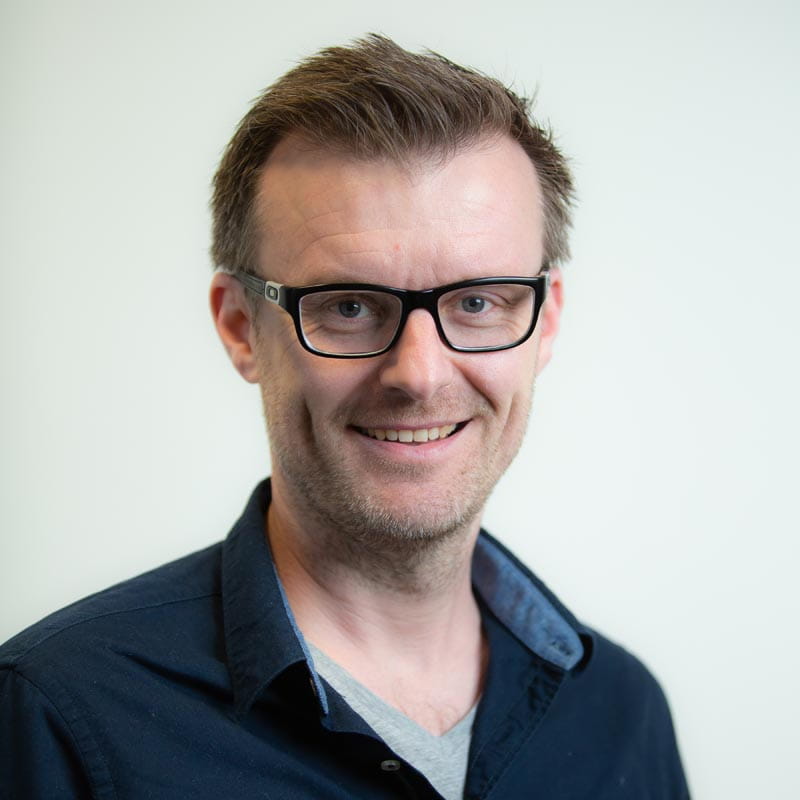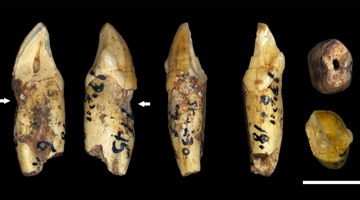About this course
Qualify for a career in the biomedical sector with this new masters programme designed in conjunction with local industry.
- Embark on a course that will give you a competitive advantage
- Learn technical and practical skills with a focus on employability
- Familiarise yourself with current technologies relevant to the biomedical sciences sector
- In-depth genome studies designed to offer deeper understanding of genetic-based disease
- Focus on current advances in research
- Hands-on training of specialist equipment encompassing molecular biology, cell culture, protein biochemistry, flow cytometry and microscopy
This new masters programme aims to produce graduates who can address the skills shortage in the UK life sciences industry. The North West of England is a growth region for life sciences and this programme will create graduates who are up-to-date with advances in new technologies relevant to the sector.
The programme was developed in consultation with representatives from the Biopharma and Biomedical sector. These representatives will be involved in programme delivery, offering industry-focused lectures, discussing career progression and opportunities with students.
The curriculum is research-led and the latest sector advances will be explored in student-focussed seminars. Personalised medicine is a key focus of the course; you will gain an in-depth understanding of genomics, the genetic basis of disease and explore new approaches to diagnosis and novel therapeutics in the treatment and management of diseases.
Biomedical Sciences is a multi-disciplinary subject and the staff who teach on the programme reflect this with a broad range of expertise. An open-door policy means that tutor support is available when you need it, whether you require assistance with ongoing studies or information on future career options.
Course modules
Discover the building blocks of your programme
Further guidance on modules
Modules are designated core or optional in accordance with professional body requirements, as applicable, and LJMU’s Academic Framework Regulations. Whilst you are required to study core modules, optional modules provide you with an element of choice. Their availability may vary and will be subject to meeting minimum student numbers.
Where changes to modules are necessary these will be communicated as appropriate.
Core modules
Medical Genetics
20 credits
20 credits
This module aims to develop a reflective understanding of the genetic basis of disease and its investigation.
Advanced Biotechniques
20 credits
20 credits
This module provides you with an understanding of some of the cutting-edge techniques and their applications currently used in biotechnology and the biomedical sciences.
Cell Technology
20 credits
20 credits
This module provides an insight into the principles and practical techniques involved in the commercial exploitation of animal cell processes. It aims to provide an understanding of cell culture as a technological component of biological research and commercial exploitation.
Diagnostics and Therapeutics
20 credits
20 credits
This module aims to provide an overview of the application of techniques to disease diagnosis and therapeutic modulation. To appreciate that a personalised medicine approach can improve patient outcomes via targeted and personalised interventions.
Current Issues in Biomedical Sciences
20 credits
20 credits
This module aims to provide you with an appreciation of current developments, controversies and newsworthy items in the biomedical sciences. Industry guest speakers will deliver case studies of products from inception, through Research and Development to final commercial product.
Biomolecular Research Skills and Data Analysis
20 credits
20 credits
The aim of this module is to equip you with the necessary skills to effectively search for information, critically appraise and analyse data, report scientific data and communicate research findings.
Optional Modules
Research Project
60 credits
60 credits
This module enables you to conduct independent in-depth research in a topic of interest in the biomedical sciences sector.
Placement Project
60 credits
60 credits
This module will provide you with the opportunity to conduct an independent, in-depth study of an agreed topic of research, carried out in an appropriate manner at an external placement provider.
Your Learning Experience
An insight into teaching on your course
Study hours
The 20 credit modules have around 37 teaching hours. Three modules will be delivered in semester 1, three modules in semester 2 and the 60 credit research project will be conducted from May to August. Generally, there are three contact days per week in semesters 1 and 2. The project will be conducted Monday to Friday for four months.
Teaching methods
Teaching methods used on the programme include lectures, practical sessions (both PC and laboratory based), workshops (support for practical work, discussion forums and a journal club), seminars, group and individual projects, tutorials, and problem solving.
Applied learning
Applied learning will be enhanced by:
- contributions from local employers who will act as guest lecturers
- the provision of work-related research projects
Please note: placement opportunities will be dependent on the availability of places offered by industrial partners and interview competition.
How learning is monitored on your programme
To cater for the wide-ranging content of our courses and the varied learning preferences of our students, we offer a range of assessment methods on each programme.
On this programme you will be assessed via examinations, practical reports, oral presentations, critical literature reviews, project report and oral defence.
Where you will study
You will study at the Byrom Street site in the University's City Campus. With an ongoing 12 million investment in laboratory facilities and state-of-the-art research facilities, you will enjoy a first class study environment.
The programme utilises specialist equipment in areas such as molecular biology, mammalian and microbial cell culture, protein biochemistry, microscopy and analytical techniques. The following equipment is available in the school: scanning electron microscopes, transmission electron microscopes, fluorescent microscopes, high pressure liquid chromatography, gas chromatography, mass spectrometry and a flow cytometer.
Course tutors

Dr Darren Sexton
Programme Leader
Education is not just about dissemination of knowledge, but about training our students' minds in critical thinking, scientific reasoning and evidence-based, research-led decision making. I find this way of teaching a privilege.
Education is not just about dissemination of knowledge, but about training our students' minds in critical thinking, scientific reasoning and evidence-based, research-led decision making. I find this way of teaching a privilege.
Dr Sexton started his career with a BSc (Hons) in Biotechnology from Dublin City University, before undertaking an MSc in Biomedical Sciences at the University of Ulster. He then went on to do a PhD in Medicine at the University of Aberdeen, followed by Post-Doctoral positions. Before joining LJMU as a Senior Lecturer in Immunology, Dr Sexton spent 10 years at Norwich Medical School. Dr Sexton's research in immunology, immunomodulation and applications of flow cytometry have brought about many key published findings in inflammation research. His expertise is employed in collaborations on immunomodulatory peptides, nanoparticles and nutraceuticals, as well as the effects of acoustic vibration on immune cell function.
Career paths
Further your career prospects
LJMU has an excellent employability record with 96% (HESA 2018) of our postgraduates in work or further study six months after graduation. Our applied learning techniques and strong industry connections ensure our students are fully prepared for the workplace on graduation and understand how to apply their knowledge in a real world context.
The School of Pharmacy and Biomolecular Sciences has an excellent employability record, which is fundamental to our close relationship with industry. The Bioscience and Biopharma sector is a global industry and Biomedical Sciences graduates will be well equipped to contribute to this sector anywhere in the world.
We expect graduates to progress into roles in diagnostics, research & development, quality assurance, production. Some, on the other hand, will further their academic career by progressing to a PhD.
Tuition fees and funding
- Fee:
- £10,705
The University reserves the right to increase tuition fees in accordance with any changes to the maximum allowable fees set by the UK Parliament. In the event of such a change, any fee increase will be subject to a maximum cap of 10% of the total course cost as originally stated at the time of your offer.
Fees
The fees quoted at the top of this page cover registration, tuition, supervision, assessment and examinations as well as:
- library membership with access to printed, multimedia and digital resources
- access to programme-appropriate software
- library and student IT support
- free on-campus wifi via eduroam
Additional costs
Although not all of the following are compulsory/relevant, you should keep in mind the costs of:
- accommodation and living expenditure
- books (should you wish to have your own copies)
- printing, photocopying and stationery
- PC/laptop (should you prefer to purchase your own for independent study and online learning activities)
- mobile phone/tablet (to access online services)
- field trips (travel and activity costs)
- placements (travel expenses and living costs)
- student visas (international students only)
- study abroad opportunities (travel costs, accommodation, visas and immunisations)
- academic conferences (travel costs)
- professional-body membership
- graduation (gown hire etc)
Funding
There are many ways to fund postgraduate study for home and international students. From loans to International Scholarships and subject-specific funding, you’ll find all of the information you need on our specialist postgraduate funding pages.
Please be aware that the UK’s departure from the EU may affect your tuition fees. Learn more about your fee status and which tuition fees are relevant to you.
- Full-time per year:
- £18,250
International Scholarships and payment plans
Liverpool John Moores University is committed to supporting international students by providing a range of scholarships and flexible payment plans to help students manage their tuition fees.
Scholarships
LJMU provides a variety of scholarships to support international students. Scholarships are available to self-funded students who have accepted their offer and met all the conditions outlined in their offer letter. Students must also demonstrate that they can cover living costs, travel, and other expenses associated to studying at the university. Postgraduate scholarships include tuition fee reductions and are often offered in partnership with external funding organisations.
All self-funded international students are eligible for an automatic scholarship worth up to £4,000. For more details and to view our full list of scholarships, visit the international scholarship webpages.
Deposit
All students must pay a £5,000 deposit before they can receive their CAS letter.
For more information view our deposit page.
Tuition Fee Payment Plan
After paying their £5,000 deposit, students have the option to pay their fees in full or in three equal instalments minus any internal scholarships and discounts. There are two payment options available for international students. You can either pay your tuition fees in full before enrolment or opt for a payment plan. With the payment plan, you can pay your fees in three instalments after making your £5,000 deposit. The first instalment is due before enrolment.
All payments should be made through Flywire. Full details can be found in the How to Pay Guide.
Early Bird Tuition Fee discount
We are excited to introduce a £500 Early Payment Discount to all self-funded international students. Eligible self-funded students who pay their fees by the required deadlines will get a discount which will be automatically deducted from the 1st year of tuition fees.
To see the required deadlines please visit the webpage
Entry requirements
You will need:
Qualification requirements
Undergraduate degree
- a minimum 2.1 BSc Honours degree in Biomedical Science or another related biological sciences degree
or
- alternative nationally recognised higher qualifications with significant, relevant work experience
or
- an international qualification that equates to UK requirements
International requirements
IELTS
- IELTS 6.5 (minimum of 6.0 in each component)
Please Note: All international qualifications are subject to a qualification equivalency check.
How to apply
Securing your place at LJMU
To apply for this programme, you are required to complete an LJMU online application form. You will need to provide details of previous qualifications and a personal statement outlining why you wish to study this programme.
Your application will be assessed by the Programme Leader and the Postgraduate Admissions Team.
You will need to:
- demonstrate sufficient knowledge to embark on the programme
- demonstrate the ability and commitment to work at postgraduate level
- display the potential to develop high level research skills
- demonstrate the ability and commitment to work at postgraduate level
Your university life
From accommodation and academic support to clubs and societies. Find out what LJMU has to offer.
Related Links
Talk to our students
Connect with a current LJMU student for advice and guidance on university life, courses and more.
See what our students are saying
At LJMU we want you to know you’re making the right choice by studying with us. You can see what our students are saying about their experience with us through their reviews on the following websites:
Related Links
News and views
Browse through the latest news and stories from the university









The University reserves the right to withdraw or make alterations to a course and facilities if necessary; this may be because such changes are deemed to be beneficial to students, are minor in nature and unlikely to impact negatively upon students or become necessary due to circumstances beyond the control of the University. Where this does happen, the University operates a policy of consultation, advice and support to all enrolled students affected by the proposed change to their course or module.

















